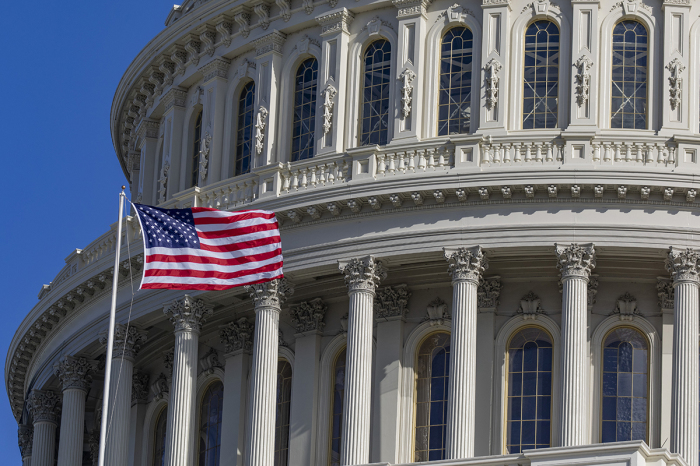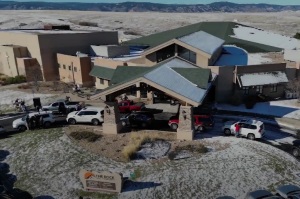Republicans projected to take control of Senate, House too close to call

With former President Donald Trump projected to become the 47th president of the United States, Republicans have recaptured control of the U.S. Senate for the first time since 2021. Unofficial results show Republicans capturing at least 51 Senate seats, enough to secure a majority.
Republicans headed into the election with 49 Senate seats. Their membership in the Senate is expected to expand by at least two beginning in January. Outgoing Republican Gov. Jim Justice easily picked up the seat held by retiring Sen. Joe Manchin, I-W.Va. In Ohio, three-term Sen. Sherrod Brown lost to Republican Bernie Moreno. Republicans successfully defended all of their seats up for reelection this year.
While Republicans will control the upper chamber when the 119th Congress is sworn in early next year, the identity of the Senate majority leader remains unclear as Sen. Mitch McConnell, R-Ky., announced earlier this year that he would step down from his role as Senate Republican leader at the conclusion of the 118th Congress.
Races in many of the swing states remain too close to call. Democrats have secured at least 43 seats. In the six remaining races, Republicans hold leads in Michigan, Montana, Nevada, Pennsylvania and Wisconsin, while Democrats lead in Arizona as of early Wednesday morning. If the leads hold, Republicans could find themselves enjoying their largest majority in the Senate since the 109th Congress, which met after the Republicans won 55 seats in the 2004 election.
The Republican-controlled Senate will be essential in helping Trump confirm a cabinet as well as nominations to the federal judiciary. The Republican-led Senate will also be crucial in helping enact Trump’s legislative priorities, although Democratic control of the House could stall the Republican agenda.
Control of the House of Representatives is also undetermined as of early Wednesday morning. Dozens of races across the U.S. remain uncalled, and both parties are short of the 218 seats needed to secure control of the lower chamber.
Regardless of the final outcome of the outstanding Senate races and which party controls the House, Republicans will remain short of a filibuster-proof majority of 60 votes in the Senate. Since most legislation requires 60 votes to pass, Democrats still have enough votes to block aspects of Republicans’ legislative agenda assuming no one within their caucus deflects and supports such legislation.
Ryan Foley is a reporter for The Christian Post. He can be reached at: ryan.foley@christianpost.com





























